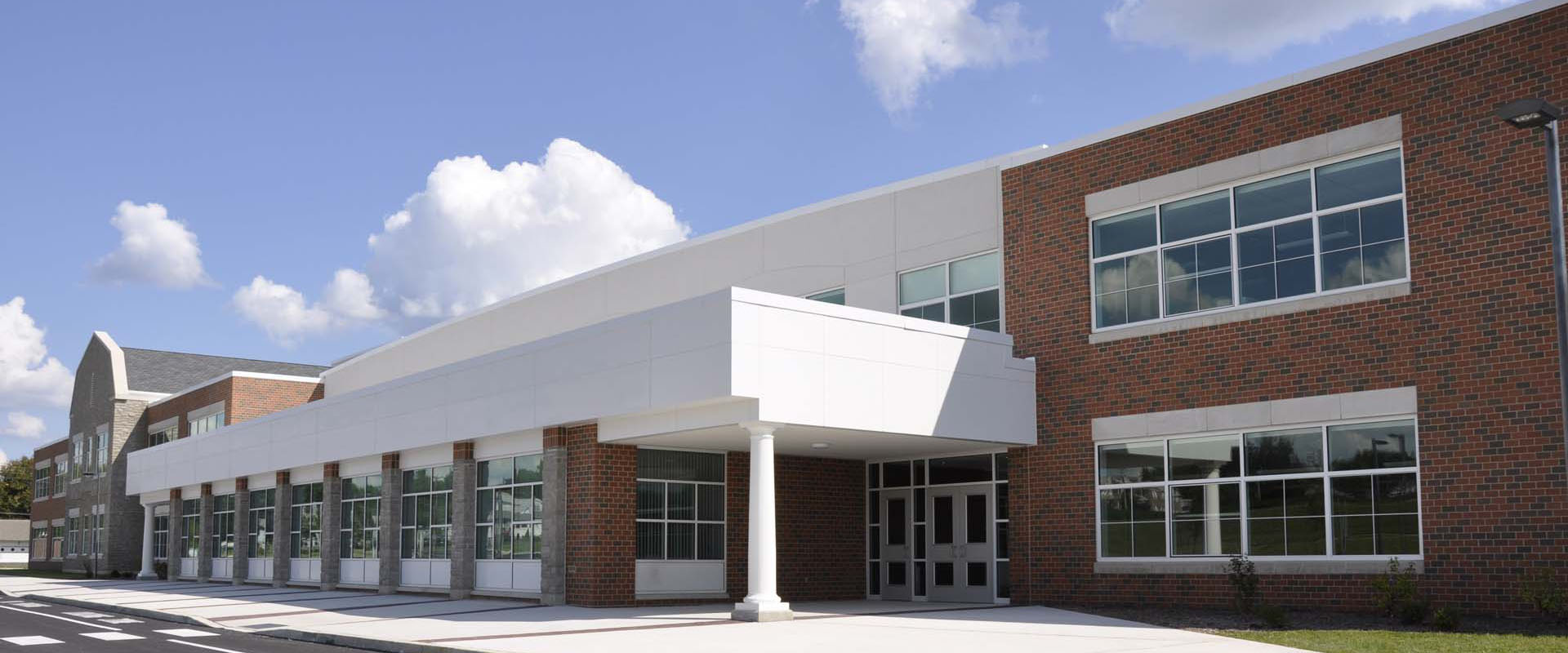New Laws Streamline Process for Sale or Lease of School District Surplus Property and Allow for Flexible Use of Sale Proceeds

September 2020
Number 68
With two separate recently passed laws, the California Legislature has altered the procedures surrounding school district disposition of surplus property. Senate Bill 98 (SB 98), an education omnibus budget trailer bill signed into law on June 29, 2020, allows for more flexible use of the proceeds of a sale of surplus property. Senate Bill 820 (SB 820), an education finance bill signed into law on September 18, 2020, makes significant changes to requirements related to the formation of a district advisory committee, the process for statutory offers of surplus property, and the timelines applicable to the deposit into the general fund of proceeds of a property sale.
Use of Proceeds from Sale of Surplus Property
The Education Code limits how proceeds from a school district’s sale of a surplus property can be expended, generally restricting the expenditure to capital outlay purposes. Until 2016, the Education Code also allowed a school district to deposit the proceeds from the sale or lease of surplus property meeting certain requirements into the general fund of the school district, allowing it to be used for any one-time general fund purpose. This allowance was included in former Education Code section 17463.7, which sunset in January 2016.
In response to the fiscal crisis created by the COVID-19 pandemic, the return of the one-time expenditure was discussed in the Governor’s May Revision to the proposed 2020-21 State Budget. (See Lozano Smith’s 2020 Client News Brief Number 47.) SB 98 provides a mechanism for this flexibility by reviving section 17463.7, and again allows for sale proceeds to be used for one-time general fund purposes.
Before a school district can take advantage of this flexible use of sale proceeds, the governing board must first submit to the State Allocation Board documents certifying that:
SB 98 also revives section 17463.7’s limitations on expenditure of proceeds for general fund purposes where the purchase of the property was made using the proceeds of a local general obligation bond or revenue derived from developer fees. Under these limitations, the original purchase price is subtracted from the amount of proceeds that can be used for one-time purposes.
SB 820 establishes that Section 17463.7 will sunset again on July 1, 2024. However, the amendments to 17463.7 provide that any proceeds from the sale of surplus property that a school district receives after June 30, 2024, can still be put to one-time general fund use, subject to the conditions noted above, as long as the transaction was initiated before June 30, 2024. Proceeds from a lease of surplus property are not impacted by these bills, and may continue to be used for general fund purposes.
District Advisory Committee
Under existing law, as set forth in Education Code section 17387, et seq., the governing board of a school district must appoint a district advisory committee to advise the governing board regarding the disposition of property. Such a committee is typically referred to as a “7-11 committee,” so named for the minimum and maximum number of committee members prescribed by statute. Currently, a school district may elect not to appoint a 7-11 committee in the event of district surplus property use by a private school for summer school or if district surplus property is used for teacher or district employee housing. (Ed. Code, § 17391.) SB 820 adds that a 7-11 committee need not be appointed in the event of a sale or lease of surplus property that has not previously operated, or was not constructed to be operated, as a K-12 school or an early childhood education facility. This removes a significant step of the surplus property procedures in the event a school district seeks to sell surplus property that has never been used as a school or educational facility. School district facilities such as vacant land, maintenance yards, and district offices, if declared surplus, may now bypass the 7-11 committee process. This particular exemption will also sunset on July 1, 2024.
Statutory Offer Process
Under existing law, prior to selling surplus property, school districts must offer the property for sale to certain city and county parks and recreation entities, followed by additional public agencies such as the Director of General Services, California universities, and the city and county in which the surplus property is located. SB 820 allows a school district to satisfy the requirements of the surplus property statutory offer process by making a simultaneous offer to all applicable entities. This will eliminate confusion as to the priority and timing of offers to various entities, and potentially will accelerate the timetable for a sale of surplus property.
Takeaways
The flexibility to use the proceeds of the sale for a one-time general fund purpose will help provide financial relief and flexibility to school districts that are suffering financially from the COVID-19 pandemic. In addition to providing for more flexibility in the expenditure of proceeds from the sale of surplus property, the Legislature has streamlined the process by limiting the requirement of using a 7-11 committee and providing that different required notices can be sent simultaneously.
If you have any questions about SB 98, SB 820, or the sale or lease of school district surplus property in general, please contact an attorney at one of our eight offices located statewide. You can also subscribe to our podcast, follow us on Facebook, Twitter and LinkedIn or download our mobile app.
Number 68
With two separate recently passed laws, the California Legislature has altered the procedures surrounding school district disposition of surplus property. Senate Bill 98 (SB 98), an education omnibus budget trailer bill signed into law on June 29, 2020, allows for more flexible use of the proceeds of a sale of surplus property. Senate Bill 820 (SB 820), an education finance bill signed into law on September 18, 2020, makes significant changes to requirements related to the formation of a district advisory committee, the process for statutory offers of surplus property, and the timelines applicable to the deposit into the general fund of proceeds of a property sale.
Use of Proceeds from Sale of Surplus Property
The Education Code limits how proceeds from a school district’s sale of a surplus property can be expended, generally restricting the expenditure to capital outlay purposes. Until 2016, the Education Code also allowed a school district to deposit the proceeds from the sale or lease of surplus property meeting certain requirements into the general fund of the school district, allowing it to be used for any one-time general fund purpose. This allowance was included in former Education Code section 17463.7, which sunset in January 2016.
In response to the fiscal crisis created by the COVID-19 pandemic, the return of the one-time expenditure was discussed in the Governor’s May Revision to the proposed 2020-21 State Budget. (See Lozano Smith’s 2020 Client News Brief Number 47.) SB 98 provides a mechanism for this flexibility by reviving section 17463.7, and again allows for sale proceeds to be used for one-time general fund purposes.
Before a school district can take advantage of this flexible use of sale proceeds, the governing board must first submit to the State Allocation Board documents certifying that:
- The sale of real property pursuant to this section does not violate provisions of a local bond act.
- The real property is not suitable to meet projected school construction needs for the next ten years.
SB 98 also revives section 17463.7’s limitations on expenditure of proceeds for general fund purposes where the purchase of the property was made using the proceeds of a local general obligation bond or revenue derived from developer fees. Under these limitations, the original purchase price is subtracted from the amount of proceeds that can be used for one-time purposes.
SB 820 establishes that Section 17463.7 will sunset again on July 1, 2024. However, the amendments to 17463.7 provide that any proceeds from the sale of surplus property that a school district receives after June 30, 2024, can still be put to one-time general fund use, subject to the conditions noted above, as long as the transaction was initiated before June 30, 2024. Proceeds from a lease of surplus property are not impacted by these bills, and may continue to be used for general fund purposes.
District Advisory Committee
Under existing law, as set forth in Education Code section 17387, et seq., the governing board of a school district must appoint a district advisory committee to advise the governing board regarding the disposition of property. Such a committee is typically referred to as a “7-11 committee,” so named for the minimum and maximum number of committee members prescribed by statute. Currently, a school district may elect not to appoint a 7-11 committee in the event of district surplus property use by a private school for summer school or if district surplus property is used for teacher or district employee housing. (Ed. Code, § 17391.) SB 820 adds that a 7-11 committee need not be appointed in the event of a sale or lease of surplus property that has not previously operated, or was not constructed to be operated, as a K-12 school or an early childhood education facility. This removes a significant step of the surplus property procedures in the event a school district seeks to sell surplus property that has never been used as a school or educational facility. School district facilities such as vacant land, maintenance yards, and district offices, if declared surplus, may now bypass the 7-11 committee process. This particular exemption will also sunset on July 1, 2024.
Statutory Offer Process
Under existing law, prior to selling surplus property, school districts must offer the property for sale to certain city and county parks and recreation entities, followed by additional public agencies such as the Director of General Services, California universities, and the city and county in which the surplus property is located. SB 820 allows a school district to satisfy the requirements of the surplus property statutory offer process by making a simultaneous offer to all applicable entities. This will eliminate confusion as to the priority and timing of offers to various entities, and potentially will accelerate the timetable for a sale of surplus property.
Takeaways
The flexibility to use the proceeds of the sale for a one-time general fund purpose will help provide financial relief and flexibility to school districts that are suffering financially from the COVID-19 pandemic. In addition to providing for more flexibility in the expenditure of proceeds from the sale of surplus property, the Legislature has streamlined the process by limiting the requirement of using a 7-11 committee and providing that different required notices can be sent simultaneously.
If you have any questions about SB 98, SB 820, or the sale or lease of school district surplus property in general, please contact an attorney at one of our eight offices located statewide. You can also subscribe to our podcast, follow us on Facebook, Twitter and LinkedIn or download our mobile app.
As the information contained herein is necessarily general, its application to a particular set of facts and circumstances may vary. For this reason, this News Brief does not constitute legal advice. We recommend that you consult with your counsel prior to acting on the information contained herein.




